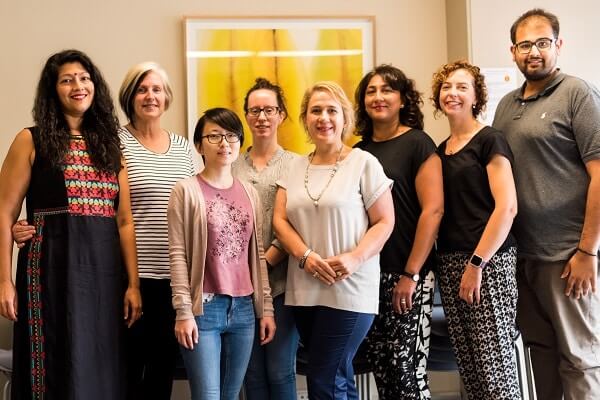It was the fifth time my friend had called me within a fortnight. The request was for my son to send my friend’s daughter the homework notes provided at school.
“Ria has not been well,” my friend said in the form of explanation, even though I did not ask for one
“Most likely being lazy again,” said her husband loud enough for me to overhear his remark.

The whole episode stayed with me for the rest of the day. So that evening, armed with a bottle of Red, I landed at my friend’s house and asked her out to dinner.
She jumped at the offer and we soon found ourselves in a cosy little spot, soaking up some tannin.
“So what’s going on with Ria?” I asked once we had exhausted the small talk.
“Oh, nothing! She has been complaining of stomach aches in the morning and funnily enough, when she stays home to rest, it seems to disappear and then returns again when it’s time to get ready for school,” said my friend with a laugh.
I looked at her and wondered if she actually was naïve or pretending, because I could see a definite pattern here that raised concern.
Ria is a lovely child, academically brilliant and a high achiever but she often talks about how ‘she needs to get top scores in Year 11 and 12’ implying pressure from her parents who were both gold medallists in their academic achievements in India.
My friend has also, in many conversations, mentioned their aspirations for Ria and how they as a family would go ‘in hibernation’ for two years to ensure she scores well.
“Do you think there could be other reasons behind her unexplained stomach aches at random times?” I asked.
“Oh no, I have taken her to the doctors and they have declared her fit and healthy so really nothing to worry about. She is just being silly.”
I am not a health professional. However, I am concerned that my friend may be making a common mistake of either ignoring or not recognising signs of anxiety that has nothing to do with being silly.
Anxiety is now the most common and fastest growing childhood mental health issue. Compounding the problem is our modern, fast-paced and screen-obsessed world.
Anxiety disorders have implications on a child’s school and home functioning with repercussions on their development. A significant proportion of childhood anxiety disorders have a chronic course that can last into adulthood.
The condition often goes undiagnosed or untreated, more so within certain communities where social dynamics, traditional expectations and cultural influences create a prevailing stigma around mental health problems.
“It’s all about conformity,” said Raspal Khumra, Support Group Coordinator at the Anxiety Recovery Centre Victoria (ARCVic).
“There is still a mentality, particularly amongst some communities, with pressures to study hard, acquire the best job, buy a big house, retain cultural values and chase the migrant dream,” she said, sharing her own story of managing anxiety.
“We are expected to live within the scope of ‘what’s acceptable’ and comply with societal rules. Any deviant struggles for acceptance and this can be the cause of anxiety,” Raspal continued.
According to her, anxiety is the most common mental health concern facing us all, with one in four of us experiencing anxiety disorder at some stage in life. “For those who have experienced anxiety disorders like myself or know someone who has, they will know how terrifying, distressing, isolating and debilitating they can be,” she said.
ARCVic is a statewide, specialist mental health organisation, providing support, recovery and educational services to people and families living with anxiety disorders. In 2017, ARCVic celebrated 30 years of providing grassroots support and delivery of services to people in the community who suffer from anxiety.
Currently with seven volunteers, 30 support groups and several counsellors, ARCVic aims to support and equip people with knowledge and skills that will build resilience and recovery and reduce the impact of anxiety disorders.
“People need to be more anxiety-informed,” said Raspal. “With our latest support group, there is a push to take it to the Australian Asian/Indian community,” she said.
“We are very excited about our new initiative to provide support, information and self-help for people within the Australian Indian and Asian community. The event is free and family members and carers are also welcome.”
The New Indian Asian Support group will meet on the 1st Monday of every month at ARCVic office in 292 Canterbury Road, Surrey Hills, between 7:30pm to 9:00pm.
There are several strategies that can help in management and care of mental health. The challenge is to get the information to the community.
SOBERING STATS
- In 2014-15, there were four million Australians (17.5%) who reported having a mental or behavioural condition.
- Australian Bureau of Statistics also says that 15.8% of all Australians (3.6 million people) reported co-existing long-term mental and behavioural and physical health conditions.
- According to Youth Beyond Blue, one in seven young Australians experiences a mental health condition.




